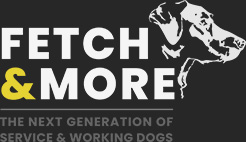
Drug Pricing Advocacy
The issue of high drug prices has been a hot topic in the United States for many years. The soaring cost of prescription drugs has become a major concern for patients, healthcare providers, and policymakers alike. Fetch and More can and will advocate on your behalf to get you the prescriptions you need at a cost you can afford. Please contact us for pricing and to schedule a callback, using jb@fetchandmore.com
According to a study by the Kaiser Family Foundation, the average annual cost of prescription drugs for an American adult increased by 57% between 2012 and 2017 (Kaiser Family Foundation, 2019). This trend has resulted in a growing number of people struggling to afford necessary medications. As a result, advocacy for drug pricing has become a crucial aspect of healthcare policy and advocacy efforts in recent years.
Drug pricing advocacy is the act of actively promoting and supporting policies and initiatives aimed at reducing the cost of prescription drugs. It involves a range of activities, from raising awareness about the issue to lobbying for legislative changes. In this policy paper, we will discuss the concept of drug pricing advocacy in detail, including its importance, methods, and the role of mediation experts in advancing this cause.
The high cost of prescription drugs has severe consequences for patients, the healthcare system, and society as a whole. Patients who cannot afford their medications may forgo treatment or ration their drugs, leading to worsened health outcomes. This, in turn, can result in higher healthcare costs due to increased hospitalizations and emergency room visits. Additionally, the burden of high drug prices falls heavily on vulnerable populations, such as the elderly and those with chronic diseases, who may require several medications to manage their conditions.
Moreover, the rising cost of prescription drugs also has a significant impact on the healthcare system. As drug prices continue to increase, healthcare providers and insurers are forced to pay more for medications, which ultimately leads to higher healthcare costs for everyone. The high cost of drugs also has a ripple effect on other healthcare services, such as medical procedures and hospital stays, as these costs are often passed on to patients in the form of higher deductibles, copayments, and premiums.
In light of these consequences, drug pricing advocacy is necessary to ensure that patients have access to affordable medications and to address the growing financial burden on the healthcare system.

Drug pricing advocacy serves several important purposes, including:
1. Raising Awareness: One of the primary goals of drug pricing advocacy is to educate the public about the issue of high drug prices and its impact on patients, healthcare providers, and the healthcare system. By raising awareness, advocates can garner support for their cause and build a strong network of allies to push for change.
2. Lobbying for Legislative Changes: Drug pricing advocacy also involves lobbying policymakers to enact legislation that addresses the issue of high drug prices. This may include advocating for policies such as price controls, drug importation, and increased transparency in drug pricing.
3. Promoting Alternative Solutions: Advocates for drug pricing also work towards promoting alternative solutions to address the issue. This may include advocating for the development of generic drugs, increasing competition in the market, and promoting the use of value-based pricing.
4. Holding Pharmaceutical Companies Accountable: Drug pricing advocates also play a crucial role in holding pharmaceutical companies accountable for their pricing practices. This may involve challenging the legality of price hikes and exposing instances of price gouging.

Drug pricing advocacy involves a range of strategies and approaches to achieve its goals. These may include:
1. Grassroots Campaigns: Grassroots campaigns are an effective form of advocacy that involves mobilizing the public to take action on the issue of high drug prices. This may include organizing protests, letter-writing campaigns, and social media campaigns to raise awareness and pressure policymakers to take action.
2. Coalition Building: Advocacy groups for drug pricing often form coalitions with other organizations and stakeholders with similar interests. By joining forces, these groups can amplify their message and increase their influence on policymakers.
3. Lobbying and Policy Advocacy: Drug pricing advocates also engage in direct lobbying efforts to influence policymakers and advocate for legislative changes. This may involve meeting with legislators, testifying in hearings, and submitting written statements to policymakers.
4. Litigation: In some cases, drug pricing advocates may turn to the courts to challenge high drug prices. This may involve filing lawsuits against pharmaceutical companies, challenging patents, and advocating for government intervention in price negotiations.

Mediation experts can play a significant role in advancing drug pricing advocacy efforts. As neutral third parties, mediation experts can facilitate dialogue and negotiations between different stakeholders to reach a consensus on addressing the issue of high drug prices. Some ways in which mediation experts can support drug pricing advocacy include:
1. Facilitating Negotiations between Pharmaceutical Companies and Payers: Mediation experts can act as unbiased facilitators to bring together pharmaceutical companies and payers to negotiate fair prices for medications. By engaging in open and transparent discussions, mediation experts can help find common ground and facilitate agreements that benefit both parties.
2. Mediating Disputes between Advocacy Groups and Pharmaceutical Companies: Mediation experts can also play a crucial role in mediating disputes between drug pricing advocates and pharmaceutical companies. These disputes may arise from allegations of price gouging or other pricing practices that are deemed unethical. By facilitating dialogue and finding common ground, mediation experts can help resolve conflicts and promote a more collaborative approach to addressing the issue of high drug prices.
3. Educating Stakeholders on Mediation and Conflict Resolution: Mediation experts can also educate stakeholders, including advocacy groups, pharmaceutical companies, and policymakers, on the benefits and techniques of mediation and conflict resolution. By promoting a better understanding of these processes, mediation experts can help stakeholders approach negotiations with a more collaborative and solution-focused mindset.

In conclusion, drug pricing advocacy is a crucial aspect of healthcare policy and advocacy efforts. It serves to address the growing issue of high drug prices, which has severe consequences for patients, the healthcare system, and society as a whole. Advocacy for drug pricing involves a range of strategies, including grassroots campaigns, lobbying, and litigation. By working together with mediation experts, drug pricing advocates can increase their impact and promote more effective and collaborative solutions to address the issue of high drug prices.




